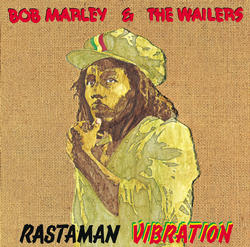the legacy of Rastaman vibration by Asabagna
 Sunday, February 14, 2010 at 06:45PM
Sunday, February 14, 2010 at 06:45PM I came upon this jewel over at the Afrosper written by my man Asabagna. He gives an excellent "Third Eye" view of the life of Robert Nesta Marley and the backdrop to the force behind Marley's lyrical imagery. Robert Nesta Marley known to the world as Bob Marley. Asa is also able to explore and explain the Caste system of the island of Jamaica and I am sure the other Caribbean islands/ This mentality and way of thinking lives in Black America as well pervades the thinking of Black people in general.
By Asabagna,

I’ve been vibing to Bob Marley all day, as sort of a tribute to the man and an acknowledgment of the influence of his music on my life.
As I listen to song after song, it takes me back… waaay back to my yout’… growing up in Jamaica, coming to Canada, struggling through adolescence and young manhood… into adulthood… until today. Through the various stages, however I want to divide and define them, the music of Bob Marley has been there for me. There was a time when I listened to Bob everyday. He was the musical prophet who soothed my raging soul. Even today, when the daily grind of life seems to be taking it’s toll… a pound of my flesh, as well as a quart of my spirit… I throw on some Bob and I am rejuvenated and empowered once again by “don’t worry, ’bout a ting, ’cause every li’l ting, gonna be awlrite”.
It’s interesting how life and time changes perceptions. Today, Bob Marley is a revered icon in Jamaica and around the world. As a yout’ in Jamaica, back in the seventies, he was seen as a rebel and his music a bad influence on us young’uns. In fact, Rastafarians in general were looked down upon… their hair (it still somewhat amazes me that dreads are now fashionable), dress, religion, music, the ganja smoking, etc.
As a child, living with my grandparents in rural Jamaica, I remember the only records we listened to were Tennessee Ernie Ford, Jim Reeves and Bing Crosby. There may have been a Mahalia Jackson gospel album too… but there was certainly no RnB, Motown and absolutely no reggae. My grandfather was so conservative that as a teenager, if I returned from the barber and my hair wasn’t cut “down to the wood”, he would escort me back himself and get it cut lower. The first time I heard the word “nigga” used was by him, in reference to poor Jamaicans… those not in the same economic and social class as we were.
Jamaica at that time was a very class conscious society, with a heavy dose of “colourism” that was added to the mix. The lighter you were, the higher social status you had, regardless if you had the economic/financial resources that went along with this social status. Whites, Mixed #1 (White and Black/Chinese/East Indians), Chinese, East Indians, Mixed #2 (Chinese/East Indians and Black) and then Blacks… was the basic colour induced pecking order. My grandfather was a dark Black man, but because he had made a lot of money and was in the upper middle class of Jamaican society, his economic class trumped his colour based social status… to some extent. He considered himself equal to the Mixed, Chinese and East Indians, but showed a subconscious, but obvious deference to Whites, regardless of their economic status.
This is the societal backdrop to Bob Marley’s music when I started listening to it on the radio and at school. “Baldhead” was a term Rastas used to signify those of the “establishment”… i.e. those with short hair… who oppressed, looked down upon and took advantage of the poor… those like my grandfather. It wasn’t based on colour… it was based on economic class, neo-colonialism and imperialism. That is why there is no White vs. Black rhetoric in Bob Marley’s music or reggae music in general. That is why a song like “Get up, Stand up, for your rights“, transcends race or colour and speaks to anyone around the world who find themselves oppressed by a political, economic, religious or social class.
Once I came to Canada in the late 70’s, going into my late teens, to my university years and into my 20’s, Bob’s music sustained me. He was about spiritual revolution and African consciousness. A young Black man of Jamaican heritage growing up in cold, white Canada, developing a revolutionary spirit, his words kept me grounded. Yeah, I was seen as a rebel by my family, especially after I started growing dreads (when it wasn’t acceptable or fashionable to do so among, especially among Black people) and began advocating for the less fortunate… the “niggas” as my grandfather used to call them. In Canada I was now the “nigga”… but called “nigger”… based solely on the colour of my skin, regardless of the economic class of my family.
But Bob saw me through it all. He brought clarity to my mind and calm to my spirit. Today as I listen and reflect… and go forward… I share him with my 2 year old son. He will certainly have his trials and tribulations as a Black man within this society. Undoubtedly, the legacy of the rastaman vibration will live on.

Reader Comments (2)
Peace